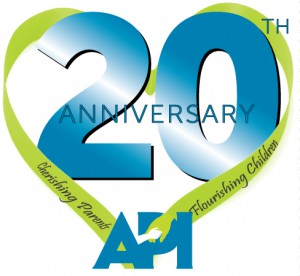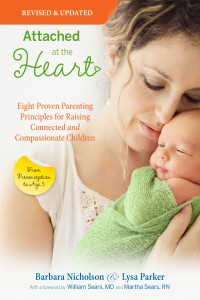 I hired a doula for my third child’s birth. After an early preterm birth with my first and a medically necessary Cesarean with my second, my third baby was on track to be my first, and only, normal childbirth experience. I was pulling out all the stops, too — aiming for an unmedicated labor and a VBAC (vaginal birth after Cesarean). I knew in my heart of hearts that having a doula was the best chance I had to reach my goals, what with the Cesarean surgical team waiting outside my hospital room’s doors “just in case,” as the VBAC agreement with the hospital read.
I hired a doula for my third child’s birth. After an early preterm birth with my first and a medically necessary Cesarean with my second, my third baby was on track to be my first, and only, normal childbirth experience. I was pulling out all the stops, too — aiming for an unmedicated labor and a VBAC (vaginal birth after Cesarean). I knew in my heart of hearts that having a doula was the best chance I had to reach my goals, what with the Cesarean surgical team waiting outside my hospital room’s doors “just in case,” as the VBAC agreement with the hospital read.
When it comes to pregnancy nutrition, mothers-to-be should consider supplementing with whole food vitamins. These types of vitamins are extracted from natural sources rather than chemically engineered, and the result is better pregnancy nutrition before conception, during fetal development and after childbirth.
Why Do Expectant Mothers Need Vitamin Supplements for Pregnancy Nutrition?
The human body is an amazing machine with a remarkable ability to get what it needs from the resources offered by nature. By eating a healthy diet, we are able to extract the necessary balance of vitamins, minerals, fats, and energy sources needed to keep our bodies running the way they were intended to work. Pregnancy nutrition requires us to be even more vigilant in getting the nutrients required so that the fetus is able to develop into a physically and mentally healthy baby.
The unfortunate truth is that many of us don’t eat a properly balanced diet any more, and the need for specialized pregnancy nutrition makes this even more evident. There are numerous factors that play into this change in the way we eat, including the availability, convenience, and low cost of processed foods. Adding supplements like whole food vitamins allows us access to regain some of those essential compounds that are missing from the processed foods we eat on a daily basis.
Why Are Whole Food Vitamins Better?
Whole food vitamins utilize sources found in nature, rather than synthesized compounds. The advantage, whether as a part of pregnancy nutrition or not, is that they are more easily absorbed and utilized by the human body. Most of us know that the best places to find health-sustaining nutrients is through a diet that includes fresh fruits and vegetables, for example, but few of us actually get enough of these foods in our day-to-day regimens. Whole food vitamins are extracted from these fruits and vegetables, as well as a variety of other naturally occurring sources. Because the body recognize these compounds-as opposed to synthetic or isolated vitamins-it knows how to put them to use. In the case of vitamins that have been isolated from their whole food sources or even created in the lab, as much as 90% of them pass directly through our bodies with no actual benefit.
A pregnancy nutrition plan usually includes a need for extra vitamins. It is nearly unreasonable to add these healthy components to a diet only to extract 10% of the actual benefits. Instead, making whole food vitamins a part of an overall pregnancy nutrition regimen helps ensure that the nutrients are actually being absorbed and used for the health of both the baby and the mother.
Where Do Whole Food Vitamins Come From?
The whole food vitamins and Sunergetic Products used for pregnancy nutrition come from a variety of natural sources. Some are extracted from beets, alfalfa, and bee pollen, for example. Rather than simply isolating these nutrients, they remain attached to their whole food ingredients to allow the body to recognize and readily utilize them. Other sources range from herbs like parsley and to less obvious candidates like fossilized coral. Coral provides the calcium that is such an important part of pregnancy nutrition.
Because the whole food vitamins recommended for pregnancy nutrition also include live enzymes, they allow even greater access by the body. These enzymes help to break down the nutrients, which include antioxidants, in order to be absorbed by the cells that use them for proper functioning. By processing the whole food vitamins at low temperatures, manufacturers are able to preserve these live enzymes and create the most powerful supplements that science and nature can team up to make.
My doula made all the difference. Not only did I reach my birthing goals, but I also got to hold the only one of my 3 babies for the first time after birth. He was delivered and placed immediately upon my chest, and I was finally able to call the shots with one of my newborns, such as when he would be removed for weighing and bathing. I had no say with either of my first two babies, and I credit my doula for giving back control of my birth experience to me.
Dana, 90, passed away Feb. 2 at her home in Fairfield, Connecticut, USA. She was a medical anthropologist who studied under cultural anthropologist Margaret Mead. The women cofounded the Human Lactation Center in Westport, Connecticut, USA, in the 1970s.
Dana was more than a student, being among the first scientists to challenge formula companies on the link among formula use and high infant mortality in developing countries. She went on to successfully pressure formula companies to educate women in third-world countries that formula should be used as a supplement to, not a replacement of, breastfeeding.
Dana also promoted breastfeeding here at home in the United States, seeking a way to restore the intuitive breastfeeding support lost to mothers of her generation. She summed it up well in an interview with The New York Times Magazine in 1970:
“When Grandmother walked out of the nursery and took up painting and golf, out with her went the whole cultural tradition of pampering mother along with baby. No one is there to tell her how to hold the nursing infant, how long to keep him suckling or how to care for uncomfortably full breasts or irritated nipples. We prefer to leave the responsibility to medical authorities, usually males who are uninformed about the nonmedical aspects of breastfeeding.”
Perhaps her most pivotal contribution to breastfeeding support came in 1969 when her research gave her the idea of the “doula” — a term that Dana is credited with coining and which is derived from the Greek word for “female servant.” From then on, Dana advocated for the use of doulas to guide mothers during and after childbirth with the goal of more successful breastfeeding.
So it is because of Dana’s efforts half a continent away, 40 years before, that my doula was able to give me a truly healing and transformative birth experience — not to mention, doulas around the world now doing the same for countless other women, giving them and their babies the best start in bonding and breastfeeding and a secure attachment relationship.
We all owe Dana Raphael a moment of gratitude for helping to change the landscape of childbirth and breastfeeding support and continue to push the Attachment Parenting movement forward to where it is today.
**Photo source: Free Images.com/agastecheg


